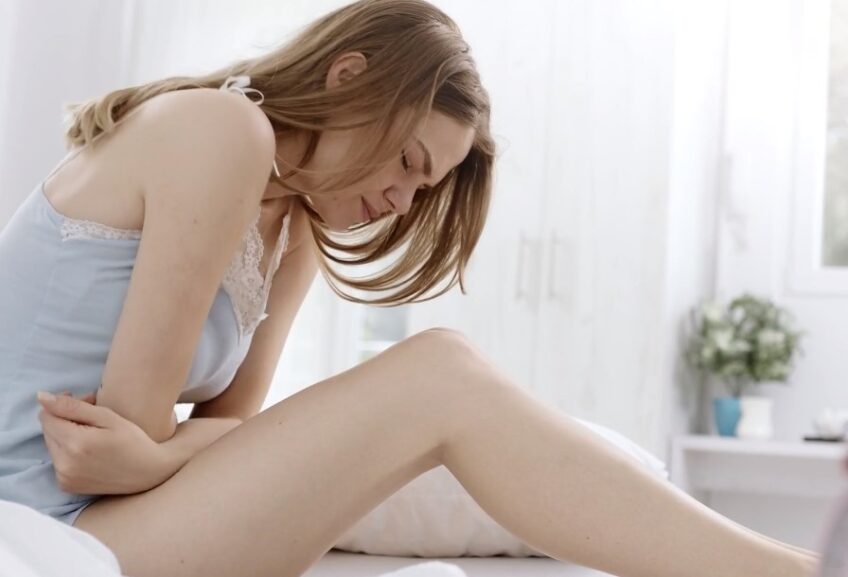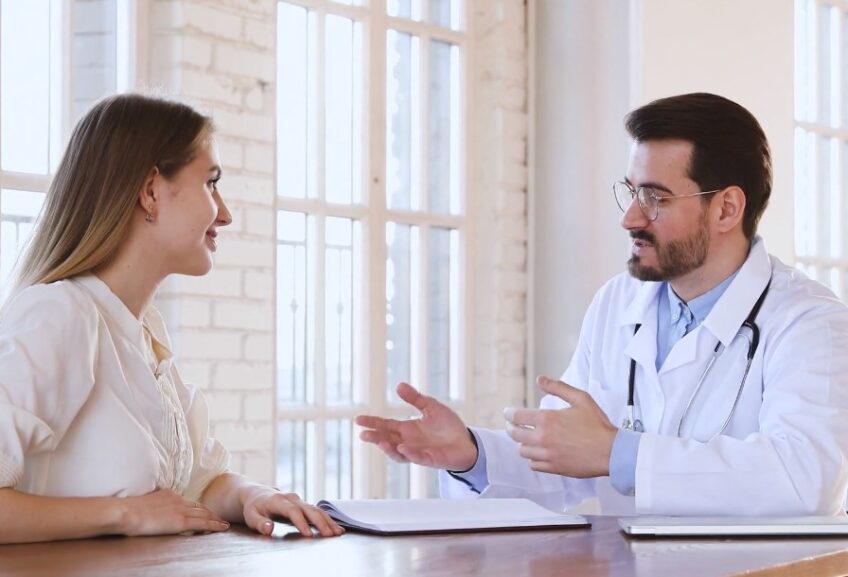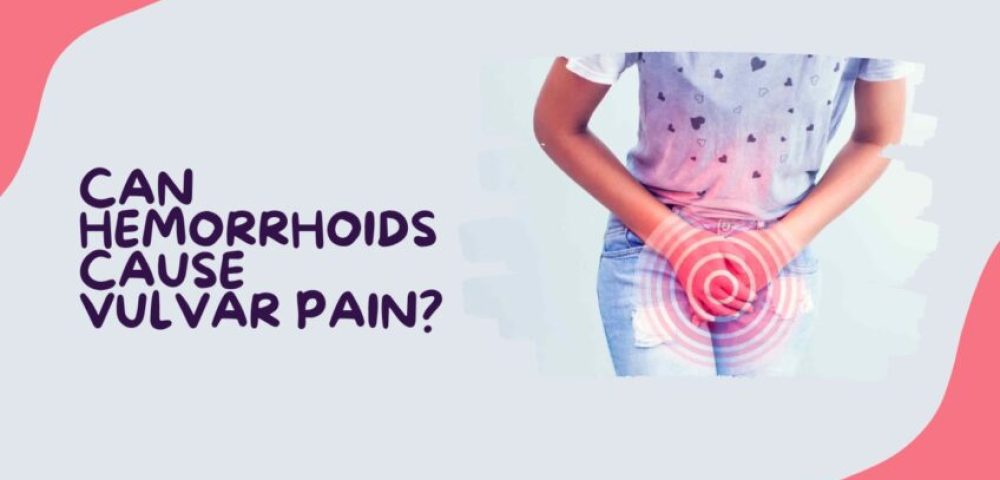Hemorrhoids and vulvar pain are two common health issues that can cause significant discomfort, especially when they occur simultaneously. For many, the question arises: can hemorrhoids cause vulvar pain? In this comprehensive blog post, we will explore this intriguing question, delving into the complex relationship between these two conditions and offering valuable insights on how to manage them effectively.
Page Contents
The Basics You Need to Know
Before we dive into the connection between hemorrhoids and vulvar pain, let’s first understand what each of these conditions entails.
Hemorrhoids
Hemorrhoids, also known as piles, are swollen veins in the lower rectum and anus. They can be either internal (inside the rectum) or external (under the skin around the anus). They occur due to increased pressure in the veins, often resulting from straining during bowel movements, constipation, or pregnancy.
Common symptoms of hemorrhoids include:
- Itching or irritation in the anal region
- Pain or discomfort
- Swelling around the anus
- Bleeding during bowel movements
Vulvar Pain
Vulvar pain, also known as vulvodynia, is a chronic discomfort or pain in the area around the opening of the vagina (the vulva). The exact cause of vulvar pain is often unknown, but potential contributing factors include:
- Nerve injury or irritation
- Inflammation
- Hormonal changes
- Genetic factors
- Pelvic floor muscle dysfunction
Symptoms of vulvar pain include:
- Burning, stinging, or aching sensations in the vulva
- Pain during sexual intercourse
- Pain during activities that put pressure on the vulva, such as bicycling or sitting for extended periods
Can Hemorrhoids Cause Vulvar Pain?
Now that we have a basic understanding of hemorrhoids and vulvar pain let’s explore the possible connection between these two conditions.
Direct Connection
While hemorrhoids and vulvar pain may seem unrelated at first glance, there is a possibility that they can be connected. Hemorrhoids can sometimes cause referred pain – pain that is felt in a different area than the actual source of the problem. In some cases, hemorrhoids may lead to pain in the vulvar area. This is especially true if the hemorrhoids are large or if they are located close to the perineum, the area between the anus and the genitals.
Indirect Connection
Hemorrhoids may also indirectly contribute to vulvar pain through the following mechanisms:
- Shared risk factors: Both hemorrhoids and vulvar pain can be associated with constipation, straining during bowel movements, and pregnancy. These shared risk factors may increase the likelihood of developing both conditions simultaneously.
- Compensatory behaviors: Individuals with hemorrhoids may develop compensatory behaviors to avoid pain during bowel movements, such as sitting for extended periods or avoiding physical activity. These behaviors can lead to pelvic floor muscle dysfunction, which is a known risk factor for vulvar pain.
- Psychological factors: The discomfort and distress associated with hemorrhoids can lead to anxiety, depression, or heightened sensitivity to pain, which may exacerbate vulvar pain symptoms.
Managing Hemorrhoids and Vulvar Pain

If you suspect that your hemorrhoids are causing or contributing to your vulvar pain, it is important to address both conditions. Here are some strategies to manage and alleviate symptoms:
Hemorrhoid Treatment
- Over-the-counter remedies: Creams, ointments, and suppositories containing hydrocortisone can help relieve hemorrhoid-related itching and inflammation.
- Sitz baths: Soaking the anal area in warm water for 10-15 minutes several times a day can provide relief from hemorrhoid discomfort.
- Cold compresses: Applying ice packs or cold compresses to the affected area can help reduce swelling and alleviate pain.
- Fiber-rich diet: Increasing your fiber intake can help prevent constipation and straining, which can exacerbate hemorrhoids.
- Oral pain relievers: Over-the-counter pain medications, such as ibuprofen or acetaminophen, can provide temporary relief from hemorrhoid pain.
- Medical intervention: If your hemorrhoids are severe or persistent, consult a healthcare provider for further evaluation and treatment options, such as rubber band ligation or surgical removal.
Vulvar Pain Management
- Topical treatments: Over-the-counter creams containing lidocaine or capsaicin can help numb the vulvar area and alleviate pain.
- Pelvic floor physical therapy: A trained physical therapist can teach you exercises and relaxation techniques to help manage vulvar pain and improve pelvic floor muscle function.
- Medications: Some medications, such as antidepressants, anticonvulsants, or hormonal therapy, may be prescribed by a healthcare provider to help manage vulvar pain.
- Biofeedback: This technique involves monitoring muscle tension and learning to control it to reduce pain.
- Cognitive-behavioral therapy (CBT): CBT can help address the psychological factors that may contribute to vulvar pain, such as anxiety or depression.
When to See a Healthcare Provider

If you are experiencing persistent or severe hemorrhoids or vulvar pain, it is important to consult a healthcare provider for a thorough evaluation and personalized treatment plan. In some cases, other underlying conditions, such as infections or skin disorders, may be contributing to your symptoms and require specific treatment.
Prevention Tips for Hemorrhoids and Vulvar Pain
Here are some tips to help prevent the development or worsening of hemorrhoids and vulvar pain:
- Maintain a healthy diet: Consuming a balanced diet rich in fiber can help prevent constipation and straining during bowel movements, which can contribute to both hemorrhoids and vulvar pain.
- Stay hydrated: Drinking plenty of water can help keep your stool soft, making it easier to pass and reducing the risk of hemorrhoids.
- Exercise regularly: Engaging in regular physical activity can help promote healthy bowel function and reduce the risk of constipation.
- Practice good hygiene: Gently cleansing the anal and vulvar area with water and a bar of mild, unscented soap can help prevent irritation and inflammation.
- Avoid irritants: Limit your use of perfumed soaps, bubble baths, and sanitary products that may cause irritation to the vulvar area.
- Manage stress: Practicing relaxation techniques, such as deep breathing, meditation, or yoga, can help reduce stress and improve your overall well-being.
Final Words
While the relationship between hemorrhoids and vulvar pain may not be immediately apparent, there is evidence to suggest that these two conditions can be connected, either directly or indirectly. By understanding the potential connections and taking steps to manage both conditions, you can work towards achieving relief from the discomfort and distress associated with hemorrhoids and vulvar pain. Remember, if you are experiencing persistent or severe symptoms, consult a healthcare provider for further evaluation and treatment.
For more articles like this visit our other page that completely explains and provide a step-by-step guide on how to use Permethrin cream for conditions like scabies, a skin infestation caused by mites. It’s applied to the entire body from the neck down.
Astrona Knight is the Editor-in-Chief at Fischer Institute, where she shares her extensive knowledge on health and wellness topics. Her insightful articles cover everything from diet and nutrition to mental health, providing readers with practical tips and the latest research findings.
Also Read:
- Understanding UTI Complications - Can it cause spotting?
- Does Retinol Cause Cancer? Unveiling the Truth
- Cashews and Bone Health: The Magnesium Connection
- Understanding Symptoms And Risks Of Untreated ADHD In Adults
- Are BCAAs Worth It? A Complete Guide To…
- Dry Needling Piriformis: Find Relief for Sciatic Nerve Pain















